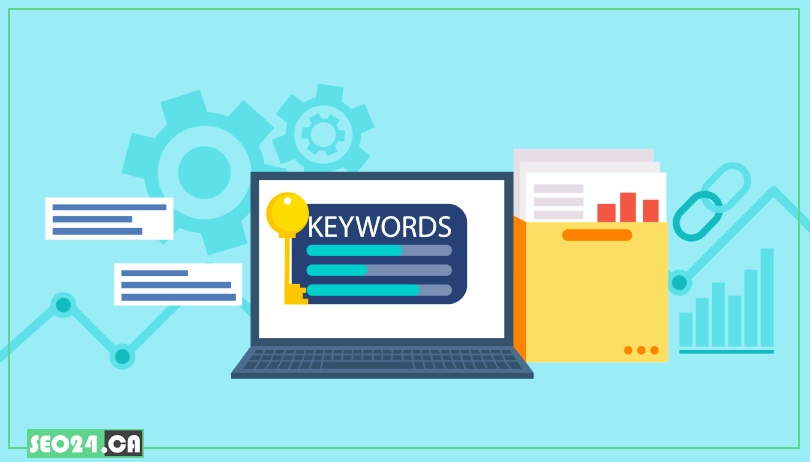
How long does it take to rank for a keyword?
Ever wondered how long does it take to rank for a keyword? The truth is, there’s no one-size-fits-all answer. Ranking on Google is a complex process, and the timeline depends on multiple factors like competition, content quality, and SEO strategy. But what if you could fast-track your ranking? Let’s dive into the key elements that influence how quickly your site can climb the search results.
Table of Contents
How Google Ranking Works?
Google’s ranking system is designed to deliver the most relevant and high-quality search results. It evaluates websites based on hundreds of factors, including content quality, backlinks, user experience, and search intent. When you target a keyword, Google’s algorithms analyze how well your page aligns with that term by assessing its relevance, authority, and overall usefulness. However, ranking isn’t instant—it depends on competition, website strength, and ongoing SEO efforts. Understanding these factors is key to estimating how long it takes to rank for a keyword.
Factors Influencing Keyword Ranking Time
How much time it takes to rank a website depends on multiple factors, each playing a role in how Google evaluates and positions your content. While some websites see results in weeks, others may take months or even longer. Here’s what affects the timeline:
1- Search Engine Algorithm Updates
Google frequently updates its ranking algorithms, which can impact how quickly a website ranks. Staying ahead of these changes is essential for maintaining visibility:
- Core updates may shift rankings overnight, affecting new and existing pages.
- AI-driven search enhancements continuously refine how content is evaluated.
- Adapting to algorithm changes with quality content and SEO best practices ensures long-term success.
2- Website Authority and Trust
Websites with strong authority and credibility tend to rank faster. Several key factors contribute to this trust:
- Older domains with a strong track record tend to rank faster.
- High-quality backlinks from trusted sources signal reliability.
- Consistent updates and engagement improve trustworthiness.
3- Content Quality and Relevance
Google prioritizes content that provides value and aligns with user intent. To improve ranking speed, focus on:
- Well-researched, in-depth content ranks better than thin or generic pages.
- Fresh content that aligns with trending topics can see faster ranking improvements.
- User engagement signals (like time on page and click-through rates) help boost rankings.
4- Technical SEO Elements
A website’s backend structure plays a crucial role in how efficiently search engines can crawl and index it:
- Fast loading speeds enhance user experience and ranking potential. for more information read “improve your WordPress page load time with these three tools“.
- Mobile-friendliness is crucial, as Google prioritizes mobile-first indexing.
- Proper indexing and structured data help Google understand and display content effectively. If you’re encountering issues like pages being “crawled currently not indexed,” it means Google found your content but chose not to include it in the search results.
5- On-page SEO Elements
Optimizing on-page factors ensures that search engines can easily interpret your content. The most important aspects include:
- Well-structured title tags, meta descriptions, and header tags boost visibility.
- Keyword placement in content, images, and URLs improves relevance.
- Internal linking strengthens topic clusters and enhances crawlability.
6- Off-page SEO Elements
External factors, like backlinks and social signals, also play a role in determining how quickly a page ranks:
- High-quality backlinks improve domain authority and ranking potential.
- Social media and content shares increase visibility and engagement.
- Brand mentions across the web build credibility and recognition.
Understanding these factors helps set realistic expectations for keyword ranking timelines. Let me know if you’d like any refinements!
Typical Timeframes for Ranking on Google
One of the most common SEO questions is how long does it take to rank for a keyword? The answer depends on multiple factors, including competition, website authority, and SEO strategy. While some keywords may rank within weeks, others take months or even longer. Let’s break down the different ranking timelines:
Short-term vs Long-term Rankings
Not all keywords follow the same ranking timeline. Some may achieve quick wins, while others require ongoing effort:
- Low-competition keywords can rank within a few weeks with proper SEO.
- High-competition keywords may take months or longer, requiring strong authority and backlinks.
- Evergreen content can take longer to rank but tends to hold stable positions over time.
Time to Rank for New Websites
New websites often take longer to rank due to lower authority and fewer backlinks. Here’s what to expect:
- Google’s “Sandbox Effect” may delay rankings for new sites, sometimes for several months.
- Consistent content creation and high-quality backlinks help speed up the process.
- Technical SEO improvements (like fast loading speeds and mobile-friendliness) ensure better indexing.
Time to Rank for Established Websites
Websites with existing authority and backlinks generally rank faster, but timelines still vary:
- Updating old content with fresh information can lead to quicker ranking improvements.
- Targeting long-tail keywords often yields faster results than competitive broad terms.
- Ongoing SEO efforts (technical improvements, backlink building, and content optimization) keep rankings stable and growing.
Ranking on Google is a long-term process, but with the right strategy, it’s possible to see steady improvements over time. Let me know if you’d like any refinements!
The Role of Competition in Ranking Speed
The more competitive a keyword, the longer it typically takes to rank. High-competition keywords are dominated by authoritative websites with strong backlinks and established content, making it harder for new pages to break through. To rank faster, focusing on low-competition, long-tail keywords and building topical authority can help improve visibility while working toward more competitive terms over time.
For businesses in highly competitive markets, localized strategies can make a difference. If you’re looking to improve your rankings in a competitive industry, expert SEO in Toronto services can help you gain an edge with targeted strategies and local optimization.
How to Shorten Ranking Time?
While ranking on Google takes time, the right strategies can help speed up the process. By optimizing content, improving website authority, and refining technical SEO, businesses can achieve faster results. Here’s how:
1- Optimize Existing Content
Refreshing and improving old content can lead to quick ranking boosts:
- Update outdated information to keep content relevant.
- Add structured data and optimize headings for better readability.
- Improve keyword placement without overstuffing.
2- Build High-Quality Backlinks
Earning strong backlinks signals authority to search engines:
- Focus on getting links from reputable, high-domain-authority websites.
- Use guest blogging, PR outreach, and industry collaborations.
- Avoid spammy or low-quality backlinks that can harm rankings.
📖 Read more: How To Get High Quality Backlinks?
3- Enhance Technical SEO
A well-optimized site helps Google crawl and index content efficiently:
- Improve page load speeds to enhance user experience.
- Ensure mobile-friendliness for better rankings on all devices.
- Fix broken links and eliminate crawl errors.
4- Create High-Quality, In-Depth Content
Google prioritizes content that provides real value to users:
- Focus on well-researched, long-form content that answers search intent.
- Use engaging visuals, videos, and structured sections.
- Regularly publish fresh, informative content to stay competitive.
For businesses looking to enhance their content strategy, professional content writing in Toronto can help create high-quality, SEO-optimized articles that rank faster.
5- Target Long-Tail Keywords
Ranking for less competitive, highly specific queries can generate faster results:
- Focus on niche, intent-driven keywords with lower competition.
- Create content that directly answers user questions.
- Optimize for voice search by incorporating conversational phrases.
6- Promote Content Actively
Amplifying content reach helps attract backlinks and engagement:
- Share articles across social media, email newsletters, and forums.
- Repurpose content into videos, infographics, and podcasts.
- Engage in online communities and industry discussions.
7- Improve User Experience (UX)
A seamless user experience keeps visitors engaged, reducing bounce rates and improving rankings:
- Ensure easy navigation and clear call-to-action (CTA) buttons.
- Optimize design for both desktop and mobile users.
- Minimize intrusive pop-ups and distractions.
A well-designed website plays a major role in SEO success. If you need a high-performance, optimized site, WordPress web design in Toronto can help create a user-friendly and SEO-ready platform.
8- Build Topical Authority
Becoming an authoritative source in your niche helps improve rankings:
- Create pillar content that covers topics in-depth.
- Link to related articles within your website to strengthen topic relevance.
- Stay updated with industry trends and produce timely content.
9- Monitor and Analyze Performance
Tracking SEO metrics allows for continuous improvement:
- Use Google Analytics and Search Console to measure traffic and rankings.
- Identify pages with high potential and optimize further.
- Adjust strategies based on performance trends.
10- Leverage Internal Linking
A strong internal linking strategy helps Google understand site structure:
- Link related articles naturally within content.
- Use descriptive anchor text for better SEO.
- Ensure deep pages are accessible within a few clicks.
By implementing these strategies, businesses can reduce ranking time and see results faster.
Common Myths About Ranking Times
Many misconceptions exist about how long it takes to rank on Google. Understanding the reality behind these myths can help set realistic expectations and improve SEO strategy:
- Myth: Ranking happens overnight – SEO is a long-term process, and even the best-optimized pages take time to rank.
- Myth: More content means faster ranking – Quality matters more than quantity; well-researched, optimized content ranks better.
- Myth: Paid ads boost organic rankings – While ads drive traffic, they don’t directly impact organic search rankings.
- Myth: SEO is a one-time effort – Continuous optimization, content updates, and backlink building are essential for sustained rankings.
- Myth: High competition keywords are impossible to rank for – With the right strategy, even competitive keywords can be targeted over time.
Avoiding these common SEO myths ensures a more effective, data-driven approach to ranking success.
Conclusion
Achieving a high ranking on Google is not instantaneous; it requires patience, persistence, and a well-planned SEO strategy. Factors such as content quality, backlinks, and technical SEO all influence how long it takes to rank. By consistently applying best practices and focusing on both short-term and long-term goals, you can improve your chances of ranking faster. For businesses aiming to boost their search visibility and accelerate ranking times, SEO24 Digital Marketing Agency can provide the expertise and personalized SEO solutions needed to enhance your online presence.
Related Posts
Learn what SEO is and why it's crucial for your business. Find out how optimizing your website can boost…
by
Having a great website is just the first step. To get people to visit it, they need to be…
by
As voice search becomes more popular, it's clear that people are changing how they look for information online. Users…
by
With the rise of zero-click searches, ranking at the top of Google's search results has taken on a new…
by


